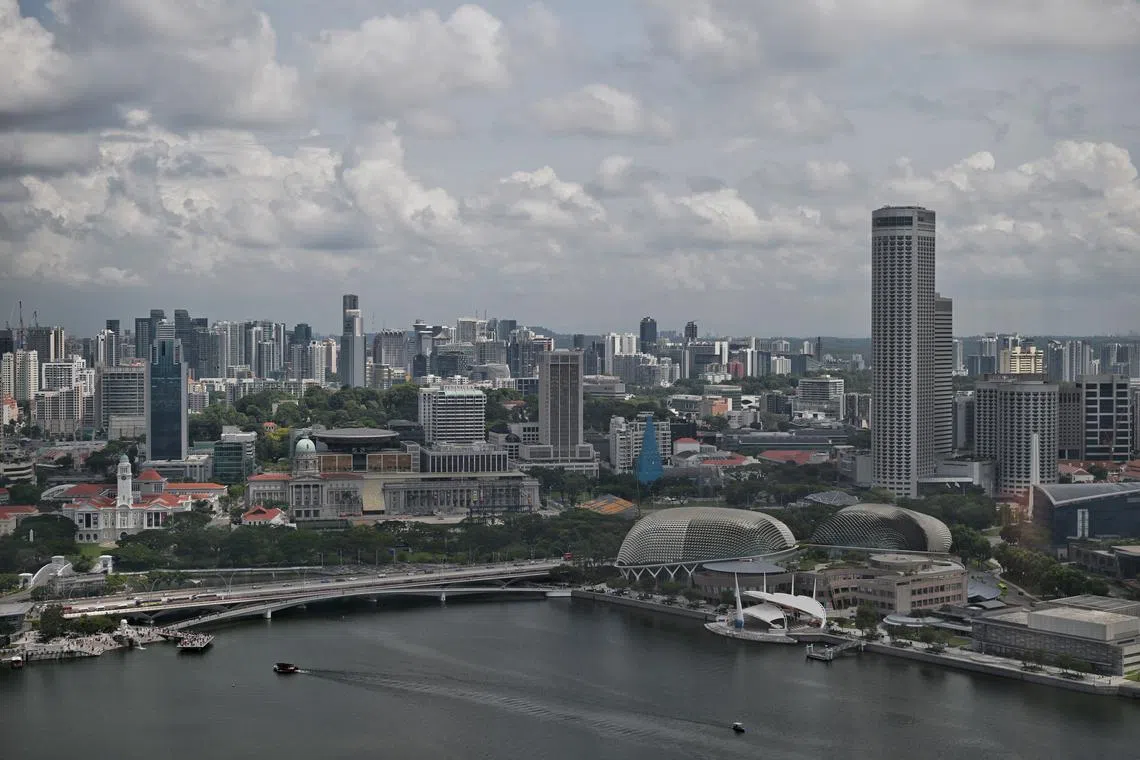Singapore drops one place to No. 4 in global competitiveness ranking
Sign up now: Get ST's newsletters delivered to your inbox

Singapore faces challenges posed by the slowing global economy amid tightening financial conditions and rising protectionism.
ST PHOTO: KUA CHEE SIONG
SINGAPORE – Singapore has been ranked fourth among the world’s most competitive economies in 2023, dropping one place from 2022,
Out of 64 economies assessed, the Republic ranked high in international trade (second), employment (second) and technological infrastructure (third), but was found to be less competitive in terms of price (51st). It was also ranked 23rd in management practices, and 26th in health and environment.
Denmark retained its position at the top of the overall rankings, while Ireland rose from seventh to second, and Switzerland fell one place to third.
The annual list is published by the World Competitiveness Centre of IMD, an independent academic institution based in Switzerland and Singapore.
In the report, IMD said that based on data, Singapore faces challenges posed by the slowing global economy amid tightening financial conditions and rising protectionism.
Other key challenges for the Republic that were highlighted include helping businesses and households cope with elevated costs and inflationary pressures, as well as ensuring businesses and workers continue to upgrade their capabilities for Singapore to stay competitive and seize new opportunities.
According to the report, the most successful economies tend to be smaller, have a good institutional framework, including strong education systems, and good access to markets and trading partners.
IMD said economies need to be agile and adaptable to navigate today’s unpredictable environment. For example, Ireland, Iceland and Bahrain have built resilient economies, and the United Arab Emirates, Saudi Arabia, Qatar and Singapore can quickly adapt their policies based on current conditions.
Ireland climbed ahead of Singapore in the ranking largely because of its “robust achievements” in economic performance, where it also jumped from seventh to second.
IMD added that Switzerland took third place overall due to its strong performance across all competitiveness factors measured. It remained first for government efficiency and infrastructure, and improved in economic performance, up to 18th from 30th.
Despite the complex interplay of inflation, geopolitical risk and political fragmentation, the global competitiveness scene remains dynamic, especially in Europe, the report said.
It observed that countries such as Thailand, Indonesia and Malaysia, which were late to open up after the Covid-19 pandemic, have started to see an improvement in their competitiveness, while those that were early to open up, including Sweden and Finland, have declined in the ranking.
A survey conducted as part of the ranking found that business confidence levels are gloomy due to risks of a global economic recession or slowdown, and inflationary pressures.
It also discovered that geopolitical conflicts outweigh concerns about environmental issues and climate change.
The 2023 ranking assessed the 64 economies based on hard data comprising 164 competitiveness criteria, including economic literature, international, national and regional sources, and feedback from the business community, government agencies and academics.
To conduct the assessment, IMD partnered with 57 local partner institutes, including the Ministry of Trade and Industry’s economics division in Singapore, for part of the overall research.



